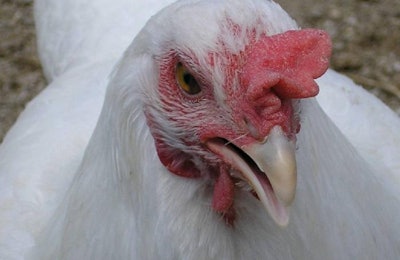
Chickens have distinct personalities, are more clever than young children and are able to engage in deceptive behavior to achieve what they want. The next time you’re tempted to dismiss our feathered friends as bird brained, think again!
It has been known for some time that some bird species are on a par with mammals in terms of their intelligence levels, emotional sophistication and social interaction. The humble chicken, however, has never been included in this category – until now.
A study of peer reviewed scientific data on cognition, emotions, personality and sociality in chickens, exploring areas including self-awareness, cognitive bias, social learning and self-control, published in Animal Cognition, has concluded that chickens are as cognitively and emotionally complex as most other birds and mammals in many areas. And chickens know how to use their skills to their advantage.
Chickens can recognize individuals within their own group, keeping track of hierarchy, and even take viewpoints other than their own and use that ability to their advantage. Hitchcock would be proud!
Masters of deceit
For example, males perform a tidbitting display to attract females when they find food. However, in doing this they run the risk of attack from the dominant male. To minimize risk, certain parts of the display are omitted if the dominant male is nearby, but added back in if the dominant male is distracted.
And neither are males averse to tricking females, sometimes making food calls when no food is available. This enables them to engage eavesdropping females and defend them against other males. However, females quickly learn when they are being deceived, and stop responding to males who don’t keep their promises.
Information exchange
But this is not the only way in which chickens can take the viewpoint of others, and their communication is much more complex than previously thought.
Rather than simply reacting to a stimulus, they are able to convey specific information, suggesting that meaning is attached to each signal in a way not unlike how humans use words. Chicken communication, it seems, may be volitional and shaped by cognition and awareness, rather than simply being a reaction.
And out to sight is not out of mind where chickens are concerned. They are able to understand that something exists even when out of sight – object permanence. There are six developmental stages to object permanence and young chicks have shown evidence of reaching stage four. Human children usually take until the age of two to reach stage six.
The study also found that chickens have some basic understanding of numbers along with some very basic arithmetic capacities, and demonstrate self-control and self-assessment, possible further suggestions of self-awareness.
The brains of birds have been historically viewed as simpler than those of mammals, and while the intelligence of various birds, particularly crows and parrots, has been widely recorded, but it would seem that chickens may now need to join their ranks, having been underestimated to date.
While I don’t think I will looking over my shoulder the next time I visit a farm, the study’s author does urge further research.


















